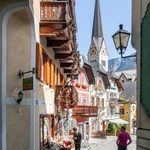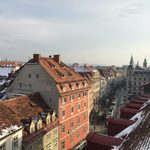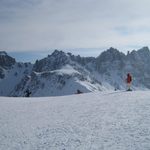A Discussion with Faculty Director Kiley Kost
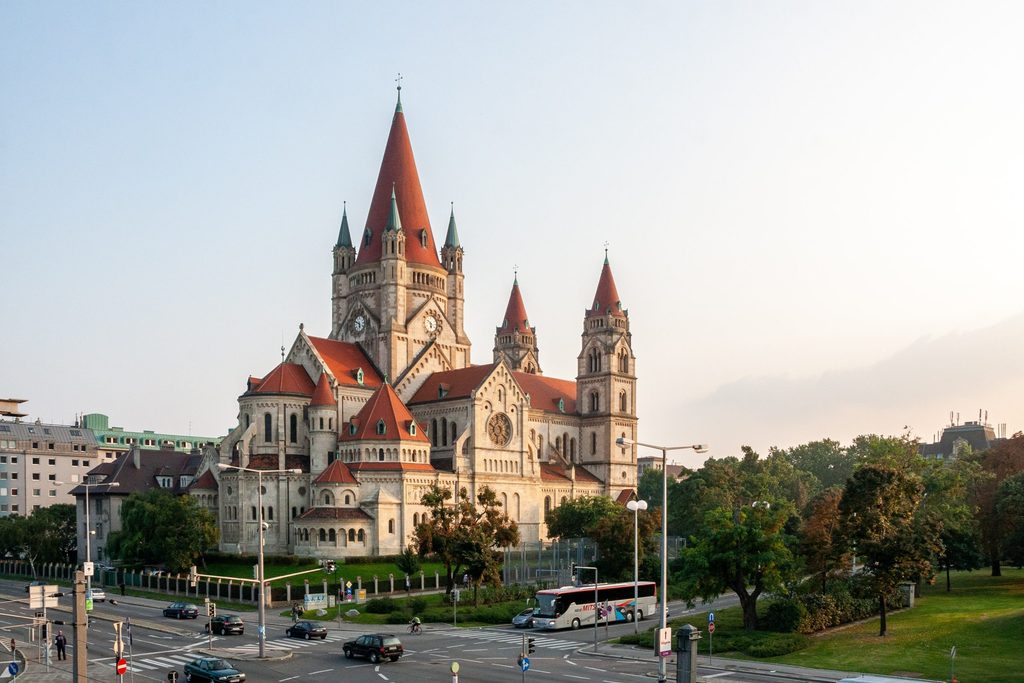
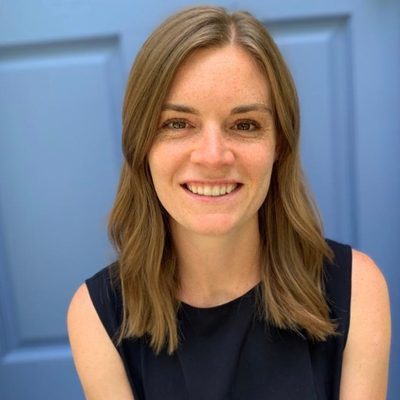
What inspired you to plan German Studies in Austria? What did you hope to accomplish?
I have spent a lot of time living in Austria–almost three years–and that has been an important connection to German Studies for me. I just returned from leading the Berlin OCS program and it was such a wonderful time with a great group of Carls, but the Berlin program is one that I inherited, and when the opportunity came for me to propose a new program, I knew we had to go to Austria. It is a very unique place and it always has been. It has distinct historical and contemporary significance as a place that is often only seen in Germany’s shadow and not as a really big player in its own right. But the history and the cultural impact–especially in terms of literature, theater, art, and music–are simply unmatched. And then on top of all that, the Alps are there!
What makes this program different from other study abroad programs?
German language immersion is a major component. The program is for students who have at least completed German 204 or placed out of German 204. You need to know German to take the courses, to navigate your daily life, and to understand the different Austrian dialects (a fun challenge–I promise!). In addition to the very immersive language learning environment, students also gain more independence by establishing a daily life in a capital city. We do a lot of things as a group, but you’re still responsible for getting to where we need to meet and navigating the city. And that’s another element: Vienna has so many theaters, music venues, events, and diverse cultural activities that we will have access to and that we will have the time and space to digest these together. Its geographic location in Central Europe also means that students will have the opportunity to travel to nearby cities and countries apart from our group excursions.
What does a typical day look like on your program?
When we’re not on longer excursions or doing a day trip, you are on your own in the morning, navigating your way using the subway, bus or the famous trams in Vienna to get to the IES Abroad center, which is where we have our classes. The IES Abroad facilities are located in an historic villa in the city center. You’ll have a couple of classes every day that often involve site visits around Vienna and then you might go to the library or a café to study. You’ll also meet with local “language buddies” to gain more casual practice in German and get to know other students living in Vienna. In the evenings, we’ll have different activities like going to the theater, a museum or the Literaturhaus or we may go see a movie or go out to dinner. There are a lot of these activities that we do together as a group, and I love to show students venues and events they might not otherwise find.
What does the housing situation look like, and what are the benefits of this living arrangement to students?
Students will live in private dorm-style apartments in Vienna. They will have their own room and will share a kitchen with fellow students in the building. Having access to a kitchen means that students will be able to cook together, possibly trying out some new Austrian dishes. This also leads to another element of cultural learning: students have to go grocery shopping on their own and so they learn about regional, seasonal, and specialty foods, and that’s a really unique opportunity. Students will certainly become loyal to certain markets or grocery stores by the end of the trip (just ask the students returning from Berlin)!
What are you most looking forward to?
I am so eager to show our Carleton students Austria! I am excited to expose them to histories that they may not know, for students to learn the Viennese dialect or maybe even other Austrian dialects, and for students to see some of the country’s stunning landscapes. It is a very special experience to be able to read a play or a book and then go out and see a production of that play or meet the author whose book you just read and have a discussion. And that can only happen when you are doing an off-campus study program.
What advice would you give to students to encourage them to study abroad during their Carleton career? What benefits do you see to the experience in general?
I would say to just go for it and trust yourself. Go in with an open mind and be open to having some of your ideas challenged and being pushed out of your comfort zone. Be ready to see your home or Carleton with a different set of eyes. For the benefits of an OCS experience, I can’t stress the independence enough. Doing a Carleton OCS program in 10 weeks sets you up to be able to live abroad or travel again on your own. Cultural learning is also a crucial component, and as I’ve said, returning home with a fresh understanding of other cultures helps you reevaluate things in your own culture. Learning another language is quite powerful for cultural understanding–being able to access a whole other dimension of literature, poetry, film, news, and so forth is truly invaluable.
Kiley Kost is a Lecturer in German. She has been at Carleton since 2018.





